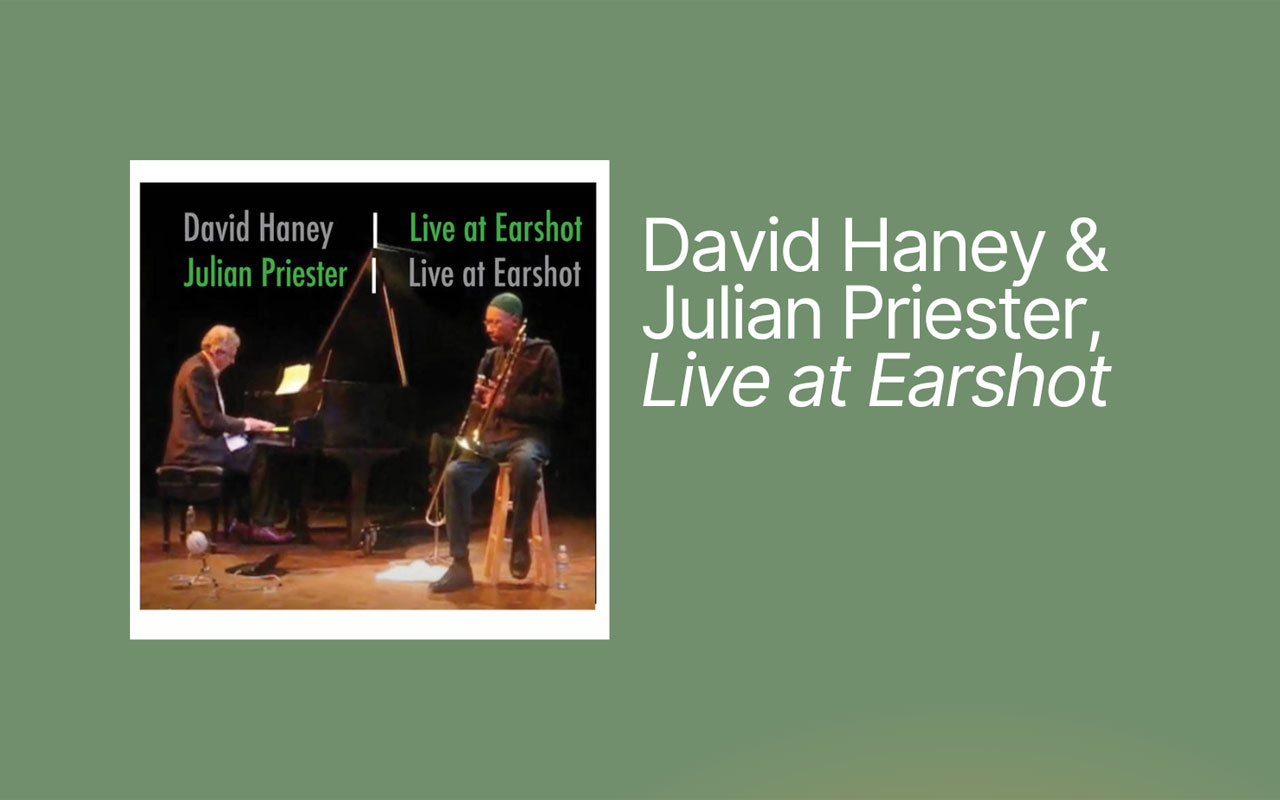
Cadence Media Records, November 2022
When trombonist Julian Priester and pianist David Haney took the unadorned stage of Wallingford’s Chapel Performance Space in 2010, it represented both a mingling of disparate influence and the continuation of a long-running partnership. Priester, a legendary trombonist who’s starred (and composed) with jazz greats from Herbie Hancock to McCoy Tyner to Max Roach, drew near the end of his 32-year teaching career at Seattle’s Cornish College of the Arts. Haney, a prolific piano composer and longtime fixture of the Pacific Northwest avant-garde scene, would soon be announced as the editor of Cadence magazine.
Sporadic touring partners since the late nineties, Priester and Haney had been honing their improvisational communication for over a decade, as documented by their 2007 collaboration Ota Benga of the Batwa (this album title references the horrific and distinctly American saga of a Mbuti man in the early 20th century). At the 2010 Earshot Jazz Festival, the duo recorded seven untitled, spontaneously composed tracks. The performance was released this past November on Bandcamp.
Wallingford’s Good Shepherd Center was built as a Catholic boarding school for orphaned and wayward girls in 1906. It briefly housed the Pacific Northwest Ballet in the ‘70s and ‘80s and more recently has been leased by the Wayward Music Series for experimental and innovative performances. Haney’s and Priester’s certainly falls into that category, and the chapel’s lush reverb provides a perfect soundscape for their art. There’s no vocalization here – not in the manner of Keith Jarret or Cecil Taylor – but the microphones pick up most everything else: the creak of Priester’s stool, the tapping of his feet, the leathery crinkle of Haney’s piano bench.
Echoing the aforementioned Taylor, Haney’s fingerwork is simultaneously impressive and unlikely, hammering sustained low-end notes while tracing effervescent runs higher up the ivory. Track one, “Earshot Jazz Fest A,” finds the pianist brooding around B-flat harmonic minor as Priester pitter-patters and overblows, coaxing labored tones from his trombone. Haney shifts the composition by a half-step midway through the twelve-minute opening track, but in truth, these songs forgo central tonality, and likewise a sense of meter. I hesitate to call this music “free” – the term, ironically, has become a classification unto itself – but it certainly eschews the trappings of your standard-fare KNKX set.
Under Priester and Haney’s unorthodox, ponderous sensibilities, motifs are unearthed, played with, and jettisoned. A line from John Handy on the Mingus tune “Goodbye Pork Pie Hat” seems to float to the surface and drift away. Priester blows John Williams’s “The Imperial March,” only for a moment, and then switches themes. This isn’t necessarily easy listening, but it’s a wonderful conversation between two greats, a time capsule of thought and creativity.